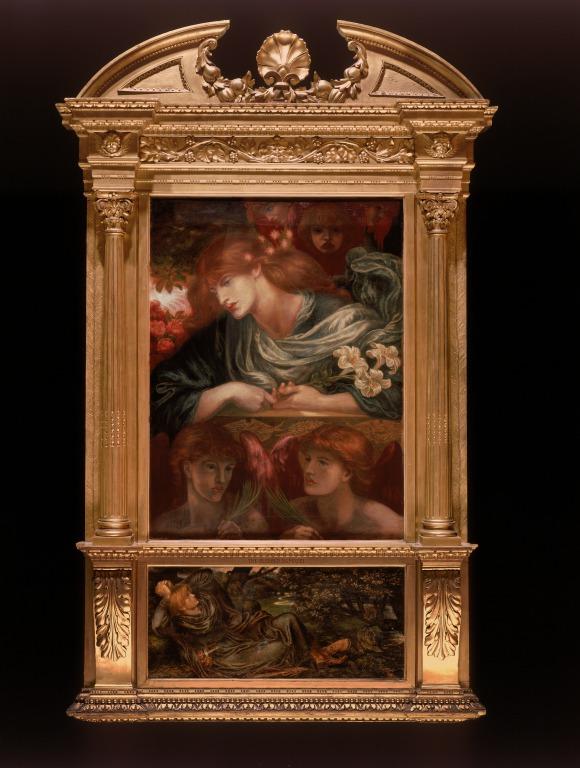Introduction
In the golden twilight of the Pre-Raphaelite movement, Dante Gabriel Rossetti’s poem The Blessed Damozel stands as a haunting testament to unfulfilled love, spiritual yearning, and the aesthetic ideals of 19th-century Romanticism. First published in 1850 and revised in 1870, this poem elegantly bridges the celestial with the earthly, blurring the lines between spiritual devotion and human desire.
Analysis
The Blessed Damozel centers on a woman who has died and now resides in Heaven. She leans over the "gold bar of Heaven," gazing down upon her still-living lover. Her yearning is not only spiritual but also intensely emotional and sensual. Rossetti blurs the distinction between sacred love and earthly passion, portraying the Damozel as a symbol of both purity and desire.
The Damozel's imagined future with her beloved in paradise is filled with romantic imagery—walking together in the groves of Eden, singing among the angels, and worshipping side by side. Yet, her heaven is incomplete without him. This presents a poignant contradiction: paradise itself is not perfect without the human bond of love.
Rossetti’s technique of interweaving the Damozel’s voice with the thoughts of her earthly lover creates a dual narrative. While she hopes for a future reunion, he mourns in the present. This contrast heightens the emotional tension and underscores the cruel passage of time.
The poem is steeped in Pre-Raphaelite aesthetic values—vivid natural imagery, medieval references, and a strong visual quality that mirrors Rossetti’s own painting of the same name. The religious setting of the poem does not suppress the Damozel’s human emotions; instead, it elevates them, making love a divine force.
Conclusion
In The Blessed Damozel, Rossetti crafts a timeless elegy for lost love—one that transcends death but never escapes longing. Through lush language and dual perspectives, he captures the ache of separation and the hope of spiritual reunion. The poem ultimately suggests that even the most divine realm is incomplete without love, blurring the boundary between Heaven and Earth. Rossetti’s vision is not one of detached divinity but of a deeply human heart that continues to love, wait, and dream.



No comments:
Post a Comment